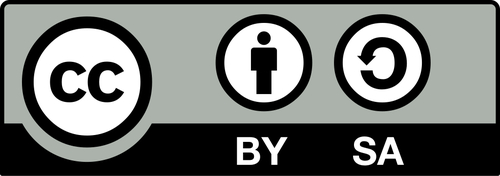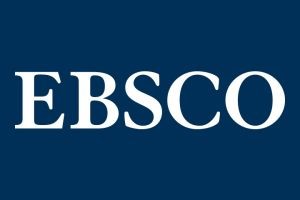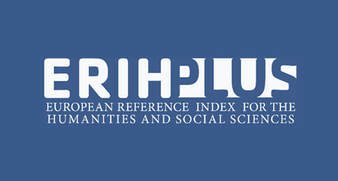About the Journal
About the Journal
Editorial Board
Scientific Council
Reviewers
Ethical Code
Special Issue
Terms of the journal
GDRP - information on the processing of personal data
Indexing
Licenses & Access
Archive
For Authors
Publishing Policy
Technical instruction for the authors
Agreement CC BY-SA
Copyright statement
Review procedure
The procedure of reviewing
Reviewer's form
List of reviewers
Contact
About the Journal
About the Journal
Editorial Board
Scientific Council
Reviewers
Ethical Code
Special Issue
Terms of the journal
GDRP - information on the processing of personal data
Indexing
Licenses & Access
Ethical Code
The editorial office of the “Journal of Modern Science” applies the guidelines set out by the Ministry of Science and Higher Education contained in the elaboration entitled "Good practices in review procedures in science" and procedures specified by the Committee on Publication Ethics (COPE) included in the "Ethical Guidelines of the Committee on Publication Ethics for reviewers of scientific works" (COPE Ethical Guidelines for Peer Reviewers)1, available on the website: www.publicationethics.org as well as the editorial office uses all possible measures to prevent copyright abuse and dishonesty.
The editorial office ensures the confidentiality of personal data of all entities involved in the publication in accordance with the requirements of the GDPR (General Data Protection Regulation of 4th May 2016), as well as the confidentiality of all materials submitted to the editorial office until their publication.
The editorial office ensures the confidentiality of personal data of all entities involved in the publication in accordance with the requirements of the GDPR (General Data Protection Regulation of 4th May 2016), as well as the confidentiality of all materials submitted to the editorial office until their publication.
The adopted rules of conduct apply to the authors, the Scientific Council, the Editorial Board, the editorial office, and reviewers.
Author’s Responsibilities:
Originality and honesty: Authors are committed to present the results of authentic and honest research. They avoid manipulation of results, falsification of research data and plagiarism.
Authorship and co-authorship: All authors of the article should be listed and their contribution to the research and preparation of the publication should be clear. Authors are responsible only for those parts of the work to which they contributed intellectually.
Data Availability: Authors should maintain research data and make it available to other researchers who may wish to review it.
Financial disclosures: Authors are required to disclose any sources of funding for their research which may influence the results or interpretation of the work.
Avoidance of conflicts of interest: Authors should avoid conflicts of interest which may affect the integrity and objectivity of the work and publication.
Responsibility of the Scientific Council:
Supervision of the journal's policy: The Scientific Council is responsible for supervising the journal's policy, setting publication directions, and developing the journal.
Support for the review process: The Scientific Council may support the publication review process by providing access to reviewers with appropriate competences.
Responsibility of the Editorial Board:
Review and publication process: The Editorial Board is responsible for supervising the review and publication process, including the selection of reviewers, evaluation of reviews and decisions on acceptance or rejection of articles.
Avoidance of conflicts of interest: Editors and members of the Editorial Board should avoid conflicts of interest and remain objective in the process of initial reviews and publication decisions.
Principles of publication ethics: The Editorial Board should comply with the principles of publication ethics and take action in the event of its violations, fraud, plagiarism, or any unfair practices.
Reviewers' responsibility:
Objectivity and Integrity: Reviewers are committed to reviewing papers honestly, objectively, and confidentially. They avoid conflicts of interest and operate in accordance with the principles of publishing ethics.
Reporting Conflicts of Interest: Reviewers are required to report any potential conflicts of interest which may affect their ability to provide an honest review.
Suggesting corrections: Reviewers should provide constructive criticism and suggest corrections to help authors with the process of improving their work.
Punctuality: Reviewers are obliged to submit the review on time, and if they are unable to review the work, they should report it to the appropriate editor of the journal.
The Scientific Council, the Editorial Board as well as the editors and the publisher, at each stage of the publication process, take into account only the scientific value of the submitted articles, without taking into account the race, ethnic origin, citizenship, gender, sexual orientation, political views, or religious beliefs of the author (or authors).
In particular, the editors shall endeavor to counteract the situations referred to as:
a) Ghostwriting – which is a manifestation of scientific misconduct. We deal with it when when an outsider, not indicated in the publication as its author or co-author, writes the content of the publication commissioned by author or co-author of the publication. The phenomenon of ghostwriting also occurs when a person contributes to a publication without without anyone's order and is not indicated in the publication as an author or co-author.
b) Guest autorship (known also as honorary authorship) - which is a manifestation of scientific misconduct. We deal with it when the share of the author is little or not at all occurred, but nevertheless it is shown as the author or co-author of the publication.
References:
1 "Core practices" - Committee on Publication Ethics (COPE)
We process personal data collected when visiting the website. The function of obtaining information about users and their behavior is carried out by voluntarily entered information in forms and saving cookies in end devices. Data, including cookies, are used to provide services, improve the user experience and to analyze the traffic in accordance with the Privacy policy. Data are also collected and processed by Google Analytics tool (more).
You can change cookies settings in your browser. Restricted use of cookies in the browser configuration may affect some functionalities of the website.
You can change cookies settings in your browser. Restricted use of cookies in the browser configuration may affect some functionalities of the website.













